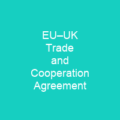What is Brexit?, a term that has become synonymous with political upheaval in recent years, was the formal withdrawal of the United Kingdom from the European Union (EU), officially taking place on January 31, 2020. The UK’s journey to this point began decades earlier, with debates over membership dating back to the 1970s. But it wasn’t until June 23, 2016, that the British people voted in a historic referendum, with 51.89% choosing to leave the EU.
The Long Road to Brexit
Before the referendum, the idea of leaving the EU had been debated for years. The Labour Party even campaigned for withdrawal without a referendum back in 1983 but later changed its stance. It wasn’t until the 1992 Maastricht Treaty that Euroscepticism began to grow, leading to failed attempts at holding referendums on EU membership. Finally, in 2016, the UK held its first and only referendum, with David Cameron resigning as Prime Minister after the Leave campaign won.
The Negotiation Period
Theresa May became the new Prime Minister and initiated negotiations for a withdrawal agreement. The process was marked by several delays and extensions, with the final agreement being ratified in January 2020. The UK entered a transition period during which it remained subject to EU law but no longer part of EU political bodies or institutions.
The Impact on the Economy
Post-Brexit, the economy faced significant challenges. Studies showed that Brexit-induced uncertainty reduced British GDP and employment from June 2016 onwards. The London Mayor’s Office reported nearly £140 billion in lost economic value due to Brexit. However, trade between the UK and EU rose higher than before Brexit by 2022.
The Irish Border Issue
A key challenge during negotiations was the issue of the Irish border. The ‘backstop agreement’ initially proposed was rejected by the UK Parliament but was eventually replaced with the Ireland/Northern Ireland Protocol, which aimed to avoid a hard border while respecting Northern Ireland’s place in the UK.
The Aftermath
Following Brexit, the UK is no longer a shareholder in the European Investment Bank and has left the Common Agricultural Policy (CAP) and Common Fisheries Policy (CFP). The NHS faces challenges with potential workforce shortages and uncertainties over care for British nationals living in EU countries. However, Irish citizens do not need to apply through the EU Settlement Scheme.
Academic and Research Challenges
Brexit poses significant challenges to British academia and research, including a loss of research funding from EU sources. The UK government has guaranteed funding for research currently funded by the EU but this remains an ongoing concern.
The Future
As the UK moves forward, it faces new trade agreements with non-EU states and the need to adapt its policies in various areas such as customs, immigration, and agriculture. The Department for International Trade was created specifically to reach these new trade agreements.
Conclusion
Brexit has been a complex and contentious process that has reshaped the UK’s relationship with the EU. While it brought about significant changes, including economic impacts and challenges in various sectors, the future remains uncertain as the UK continues to navigate its post-Brexit landscape.

You want to know more about Brexit?
This page is based on the article Brexit published in Wikipedia (retrieved on January 31, 2025) and was automatically summarized using artificial intelligence.





